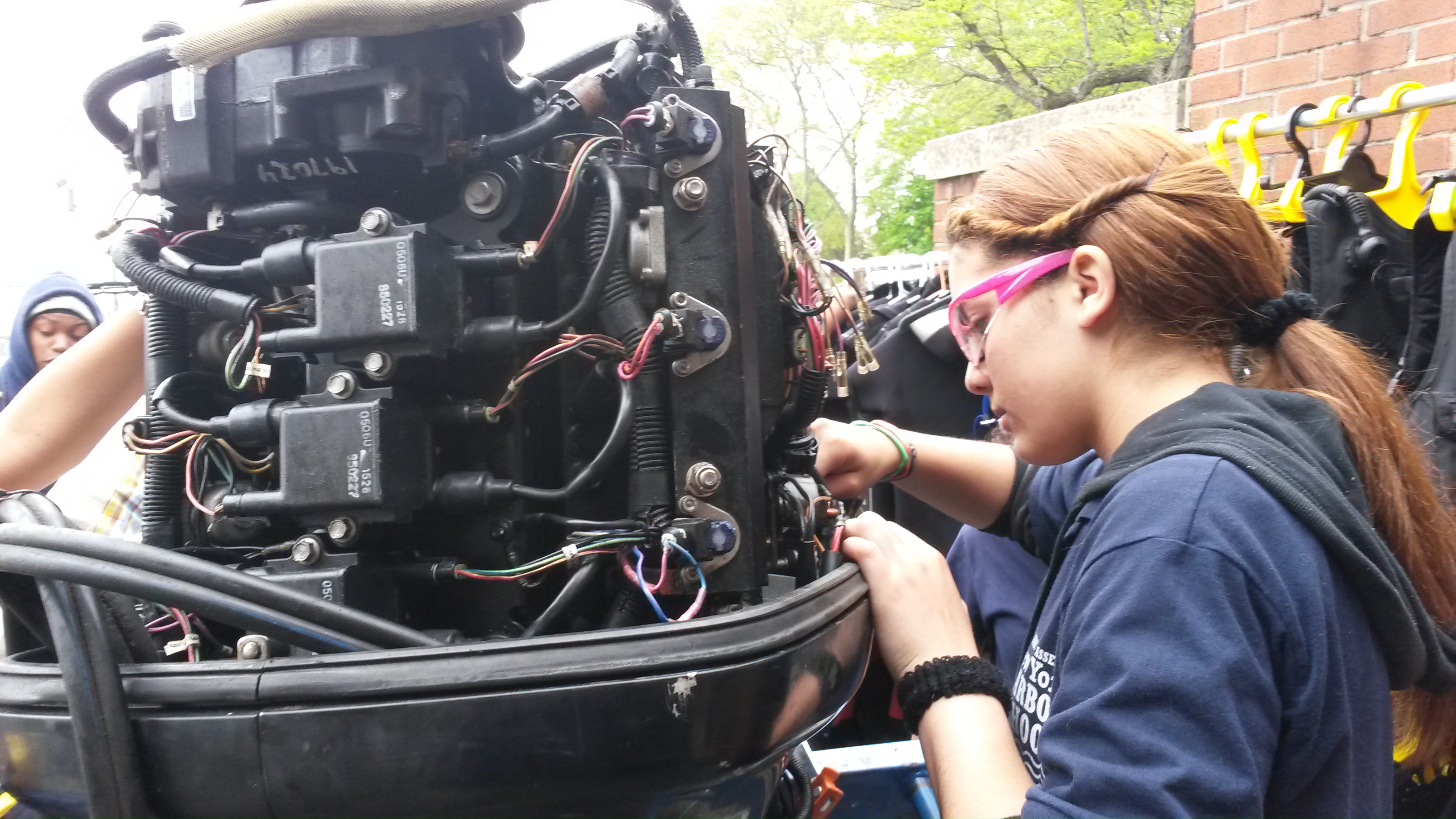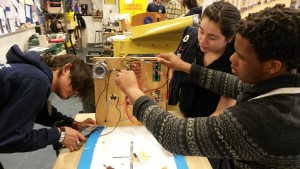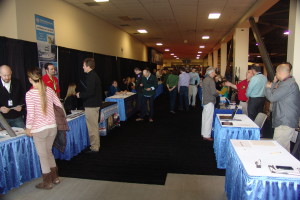Associations promote marine careers through creative avenues

If there is one common problem everyone in the boating industry faces, it is a shortage of qualified marine technicians. As baby boomers are phasing into retirement, there are not enough applicants to take the open positions.
To address this issue, marine trades organizations are finding creative ways to attract professionals and highlight the benefits of an industry career. We spoke with two organizations that approached the problem in different ways.
Promoting industry excitement through donations
The American Yacht & Boat Council (ABYC) Foundation recently partnered with BRP Evinrude on a campaign to fund two outboard engines donated to marine technology classrooms.
“The recreational marine industry has implemented a variety of technologies, particularly over the last several years, that will require skilled technicians for boat and engine repairs,” said Jeff Wasil, engineering manager for emissions testing certification and development for BRP-Evinrude. “BRP is very much in support of organizations such as ABYC that can provide comprehensive training to new marine technicians.”
One 75hp Evinrude ETEC engine was donated to the Traverse Bay Area Intermediate School District Career-Tech Center (TBAISD), which will be used to teach the teardown and reassembly of an outboard. One 40hp Evinrude ETEC engine will be donated to the Urban Assembly New York Harbor School (UANY), which will be used in a lesson on small boat handling.
John Adey, president of ABYC, said inspiring kids to pursue a career in marine technology begins in the classroom, where the school needs to build the excitement. Old, outdated equipment does not provide the same inspiration as new gear.
The old equipment “is helpful because we want them to know the old stuff too, but I really think we need to find a way to let the students know that there’s really exciting, fun stuff going on,” Adey said.
“Far too many technical schools and high schools still train their students with very dated marine engines and boats,” added Wasil. “Getting new technologies such as Evinrude ETEC outboards in the hands of aspiring new students will help ensure these students have the experience to lead toward rewarding careers in the recreational marine industry.”
Donations are being accepted to fund this project through the ABYC Foundation throughout the year.
Adey would like to see more companies donate items to the foundation, and not just expensive equipment – banners, hats and other “swag” make a marine technology program more desirable and develop brand loyalty early.
“If you’re a freshman and – for all four years – you have been in four different marine technology classes that have great banners, and Evinrude gave you a shirt and all this other stuff, what are you going to want to work on when you get out into the industry? You’re going to want to work on an Evinrude,” said Adey.
Donations are single-source, tax-deductible opportunities for companies to send goods to schools. ABYC hopes to be a national distribution point for companies to easily donate, as the foundation has existing relationships with the schools.
In addition, ABYC is also creating a low-cost, relevant marine technology program based on “Fundamentals of Marine Service Technology,” a high school level textbook written by Ed Sherman, ABYC vice president and education director.
In order to create this curriculum, ABYC is writing a grant to a local foundation that deals with technical schools and has asked donors to fund the project.
“We’ll have a full-on curriculum so that any school that decides to create a marine technology program has a ready-made set of curriculum that’s affordable because of the donations and really comprehensive,” said Adey. “We want to make this so affordable and so dynamic that schools just can’t resist to take the curriculum.”
Tooting our own horn
The Northwest Marine Trades Association is targeting existing professionals with a marine trades career fair during the Seattle Boat Show in February. The fair will feature 42 companies from all sectors of the industry with 200 job openings at varying skill levels.
This is the second year the NMTA has hosted the fair, which was half the size in 2015 with 20 companies and 100 openings. NMTA took guidance from the Ft. Lauderdale International Boat Show, which hosted a similar fair starting in 2014.
“It was pretty successful [in its first year]. I know some companies found a couple employees and this year we’re hoping to make it more successful,” said Peter Schrappen, vice president and director of government affairs at NMTA.
The boat show provides an opportunity to engage an already captive audience.
“We’re capitalizing and extenuating all the positive we have in our favor so we don’t have to reinvent the wheel or create an event out of a vacuum,” said Schrappen. “We can treat this as an add-on and we’re taking advantage of part of the boat show that’s not used for any of the exhibits or boats.”
 NMTA is promoting the fair through Craigslist, newspapers, boating magazines and through engaging the Washington State Department of Commerce and Veterans’ Affairs office.
NMTA is promoting the fair through Craigslist, newspapers, boating magazines and through engaging the Washington State Department of Commerce and Veterans’ Affairs office.
“We hear all the time that our members have a hard time finding good, qualified workers, and for us not to step forward and step up would really do our members a disservice,” said Schrappen. “We try to solve problems and putting together a career fair seemed like the right thing to do, and to do that during the boat show seemed like the ideal situation. You already have the boating pubic interested in boating.”
NMTA also supports Core Plus, a program in its area that promotes a return to teaching analytical skills and mechanical aptitudes. The association is involved with the Washington Maritime Federation and is working with them, as well as the state governor and legislature, to fund Core Plus in the state budget.
“We need to work with our allies, who are not just in recreational but maybe in the bigger cargo companies and the pilots, trying to figure out ways to work together to get young people realizing that a career in the marine trade is a heck of a way to make a living,” said Schrappenn. “It’s a $70,000 a year average salary [in Seattle] and it’s very appealing. We just need to do a better job and get the word out of tooting our own horn.”




